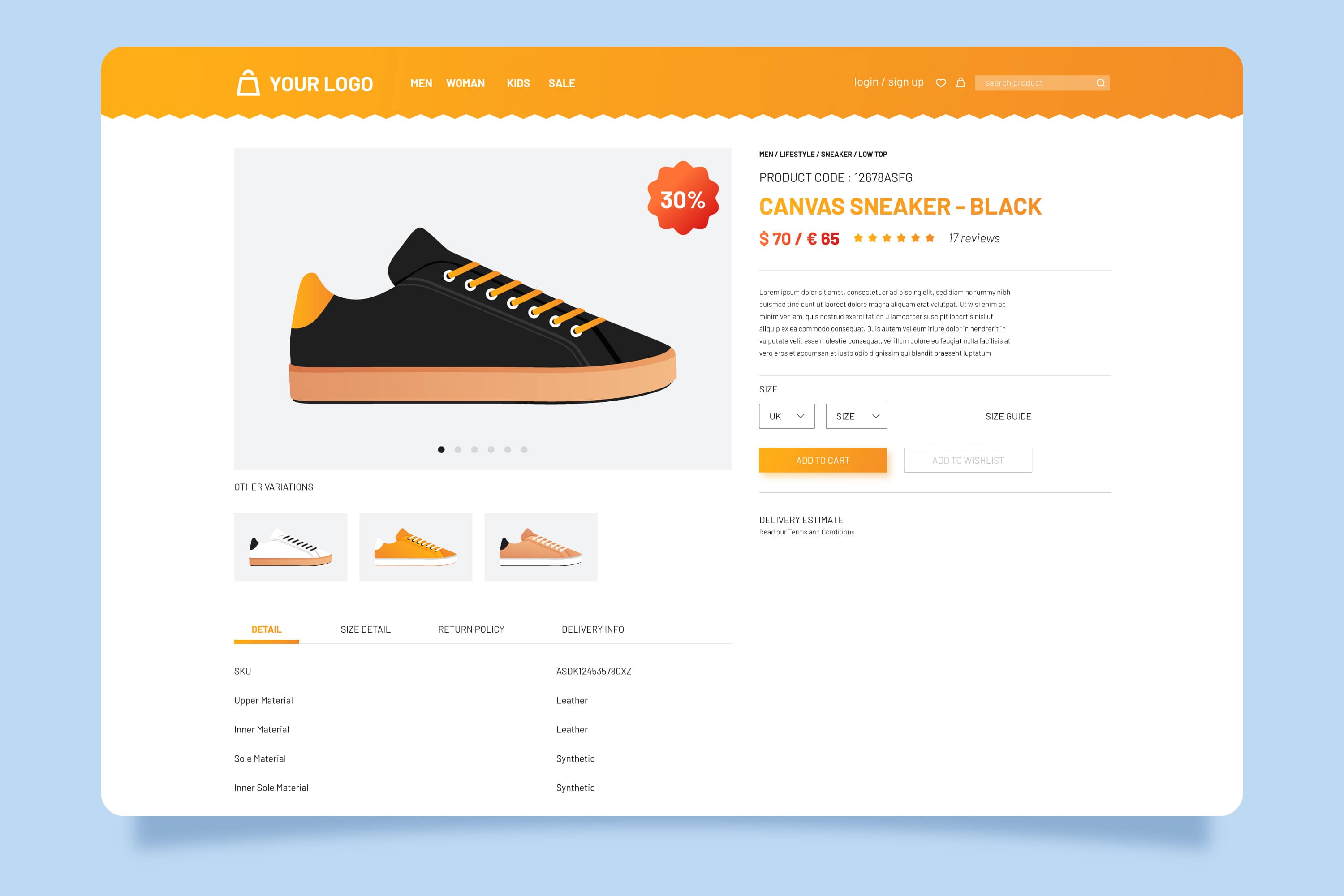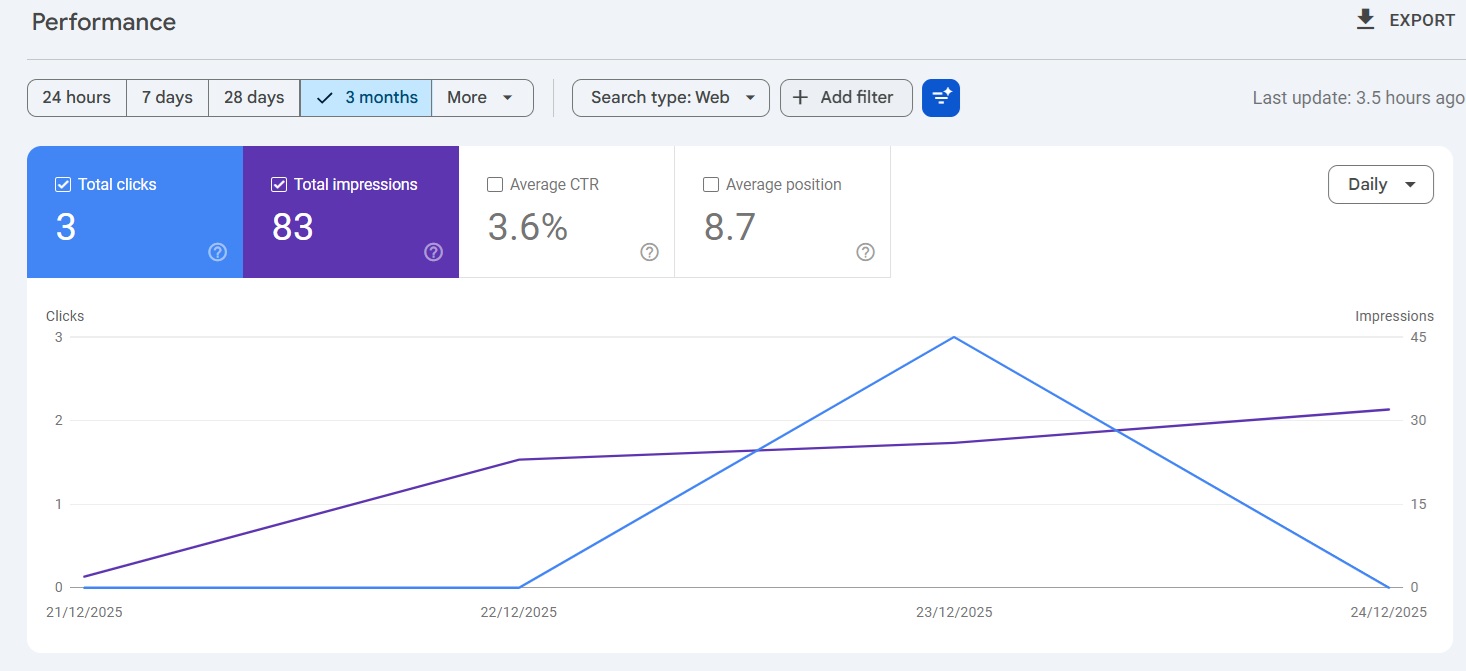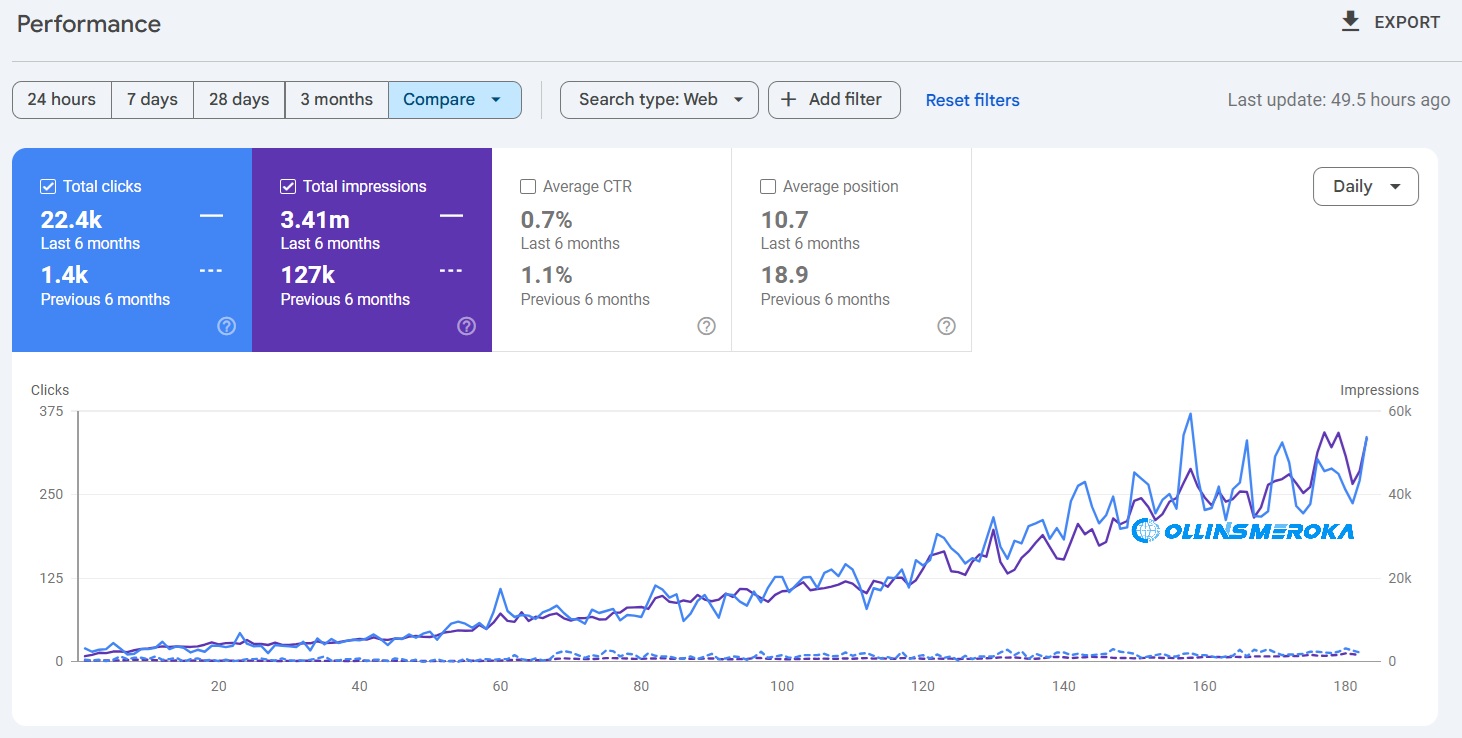Buying shoes online in Kenya is about learning to analyze an online business for trust, authenticity, and value. The fear of being scammed, receiving a low-quality fake, or dealing with incorrect sizing is real.
As digital marketing experts, we analyze online businesses for a living. This guide will teach you how to vet an online shoe store with the same critical eye we use, ensuring you can shop safely, smartly, and with complete confidence.

The Expert's Checklist on How to Vet Any Online Shoe Store in Kenya
Before you even browse a single product, you must evaluate the seller. A trustworthy business leaves a specific digital footprint, while a questionable one shows clear red flags.
Analyzing their Social Media Proof (Beyond Follower Count)
A high follower count can be bought; genuine engagement cannot. Look past the vanity metrics and analyze the quality of their community.
A legitimate store will have real comments from people asking about products, and more importantly, they will have a "Tagged Photos" section on Instagram showing actual customers wearing their shoes.
This is authentic social proof and is far more valuable than a thousand bot followers.
Evaluating Website Trust Signals (SSL, Contact Pages, and More)
If the seller has a website, it provides a wealth of information. The first non-negotiable signal is a padlock icon in the browser's address bar, which means the site has an SSL certificate and is secure.
Beyond that, look for a clear "About Us" page and a "Contact Us" page with a phone number and, ideally, a physical location.
A professional email address (e.g., sales@brandname.co.ke) is a much stronger trust signal than a generic brandname@gmail.com.
Testing Their Customer Service & Communication Funnels
How a business communicates before a sale is a strong indicator of how they will communicate after. As marketers, we call this the communication funnel. Test it.
Send a simple question via DM or WhatsApp about a product's availability. Do you get a professional, helpful response within a reasonable time, or are you ignored for days?
A quick, clear, and respectful reply is a massive green flag that points to a well-run operation.
How to Spot Fakes & Get the Right Size When You Buy Shoes Online
The two biggest financial and practical risks in buying shoes online are receiving a counterfeit product and dealing with incorrect sizing.
An expert eye can spot the difference between a genuine article and a cheap knock-off, and there are simple strategies to ensure you get a perfect fit before you spend a single shilling.
How to Spot Counterfeit Shoes Online in Kenya
Go beyond just the price. To spot a fake, you need to look at the details. Check for inconsistent or messy stitching, visible glue stains around the sole, and logos that are slightly off-center or use the wrong font.
Compare the product photos directly against official images on the brand's global website. Any deviation is a red flag.
Lastly, trust the golden rule: if a popular, high-demand sneaker is being sold for a price that seems too good to be true, it is.
A Practical Guide to Mastering Online Shoe Sizing
To avoid the frustration of a shoe that doesn't fit, become proactive. The most reliable method is to measure your foot.
Place a piece of paper on the floor, stand on it, and mark the tip of your longest toe and the back of your heel. Measure the distance in centimeters.
When you find a shoe you like, ask the seller directly, "My foot measures 26cm, what size do you recommend for this specific model?" This puts the responsibility on them to give you accurate advice based on that particular shoe's fit.
Understanding Return Policies for Kenya Online Shoes Sellers
A return or exchange policy is not just a customer service feature; it's a sign of a business's confidence in its products. Before you buy, find this policy on their website or ask them directly in a DM.
A clear, fair policy that allows for exchanges in case of a sizing issue is a huge trust signal. If a seller has a strict "No Returns, No Exchanges" rule, it's a major red flag that indicates they do not stand behind what they sell.
Decoding the Instagram & TikTok Shoe Market in Kenya
A significant portion of the most stylish and unique shoes in Kenya are sold directly through social media.
This ecosystem can be confusing and feel risky to newcomers.
As digital marketing experts, we understand this direct-to-consumer model and can show you how to navigate the world of "DM for price" safely and effectively.
The Business Model Behind "DM to Order" Online Shoe Shops
The reason many stores use "DM for price" is often operational. They are small businesses, sometimes run by a single person, with constantly changing stock.
This method allows them to manage inventory and customer interactions directly without the overhead of a full e-commerce website.
Understanding this demystifies the process and helps you approach it as a standard business transaction.
A Safe Transaction Checklist for Social Media Purchases
To protect yourself when buying on social media, follow these steps in order:
- Vet the Page: Use the checklist from our first section to verify the seller's legitimacy.
- Confirm Details in Writing: Get all details, including size in cm, final price including delivery, and condition, in writing within the DM conversation.
- Use a Business Till Number: Prioritize paying via a Lipa na M-Pesa Till Number over a personal phone number. It provides a clearer transaction record.
- Send Proof of Payment: Immediately send a screenshot of your M-Pesa confirmation message to the seller and ask them to acknowledge receipt.
Identifying Reputable Influencers vs. Risky Drop-Shippers
Learn to distinguish between a genuine boutique and a low-quality reseller.
A reputable online store owner or influencer often shows their face, creates original video content showcasing the actual products, and has a consistent brand aesthetic.
Risky pages, on the other hand, often use generic stock photos downloaded from the internet, have no personal branding, and may be "drop-shipping" low-quality goods without ever having seen the product themselves.
A Guide to Payments and Delivery When You Buy Shoes Online in Kenya
The final steps of the customer journey are payment and delivery. These final steps are where many online businesses succeed or fail.
A smooth and transparent logistical process is the hallmark of a well-run operation. As a savvy online shopper, knowing what to expect is key to a stress-free experience.
Why M-Pesa Till Numbers Are a Major Trust Signal
When it comes time to pay, the method matters. Most legitimate businesses in Kenya are registered for Lipa na M-Pesa and will provide you with a Till Number or PayBill.
This is a significant trust signal because it creates an official, trackable business transaction.
Be cautious if a seller insists on payment to a personal M-Pesa number, as this offers less protection and can sometimes be a red flag for a less established or professional setup.
Setting Realistic Expectations for Delivery Times and Costs
Logistics are a crucial part of the online shopping experience. For deliveries within major cities like Nairobi, expect a timeline of 1-3 business days and a delivery fee ranging from KES 300 to KES 500.
For deliveries to other towns or "upcountry," be prepared for longer wait times (3-7 days) and higher costs.
A professional seller will always be upfront about these costs and provide you with a clear estimate before you complete your purchase.
How to Find Real Value When You Buy Shoes Online in Kenya
Finding a good deal is not just about hunting for the lowest price; it's about getting the best possible value for your money.
This means knowing the difference between a cheap, low-quality fake and a genuinely high-quality bargain. An expert shopper knows where to look for true value.
The Strategy of Shopping Sales and Using Discount Codes
The most reliable way to save money is to buy from reputable stores during their official sales periods.
Follow your favorite online boutiques on social media and sign up for their email newsletters to be the first to know about upcoming deals.
Many websites also offer a small discount code for your first purchase when you subscribe, which is an easy win.
Tapping into the Online Thrift ("Camera") Market for Unique Value
The second-hand market offers incredible value, allowing you to acquire high-quality, durable brands at a fraction of their original cost.
Many Kenyan entrepreneurs have curated online thrift stores, especially on Instagram. These pages offer unique pieces you won't find anywhere else.
When buying thrifted shoes, always request detailed photos of the soles and any imperfections to ensure you are happy with the condition before paying.
Why a Trusted Online Store is Your Best Digital Marketing Asset
The principles we've just discussed for being a smart online shopper are the very same principles that create a successful online business.
The trust, transparency, and professionalism you now know how to look for as a customer are precisely what we help businesses build every day.
The most successful online stores in Kenya don't just happen to rank on Google or have a lot of followers; they have executed a deliberate digital strategy.
They have invested in professional branding, built a secure website, fostered an engaged community on social media, and created a seamless customer journey from the first click to the final delivery.
A great online presence isn't just about having great products; it's about executing a great digital strategy that builds unshakable customer confidence and long-term loyalty.
Are you a business owner in Kenya looking to build the kind of trust and authority we've detailed in this guide?
Do you want customers to feel completely confident when they shop with you? That is the power of strategic digital marketing.
Contact Collins Meroka Digital Marketing for a free audit of your brand's online presence.
About the Author

Collins Meroka is a Digital Marketing Consultant with over a decade of experience applying psychological principles to digital marketing campaigns across Kenya. He holds a degree in Telecommunications... [Read more]


